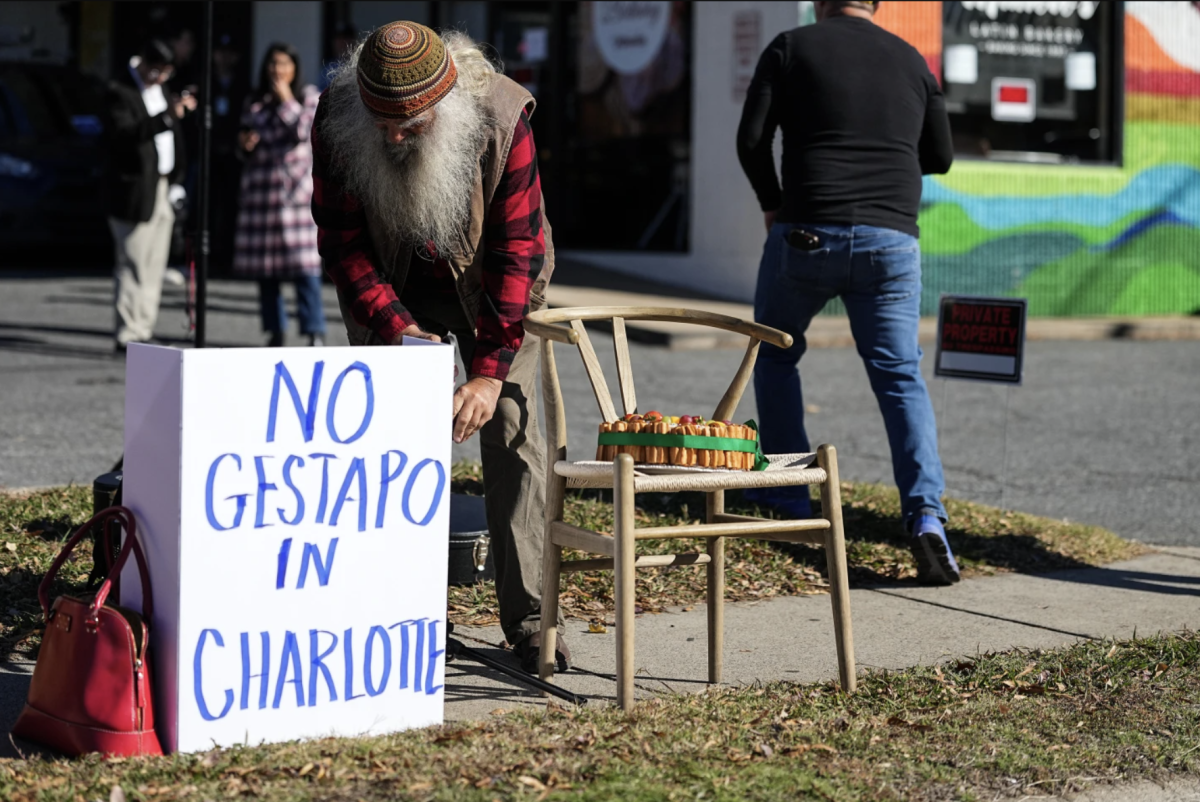The 2020 presidential election is on pace to set fundraising records.
President Donald J. Trump has already raised $165 million for his reelection, and the field of Democratic candidates has brought in a combined $475 million.
The election coincides with the 10-year anniversary of the Supreme Court case that opened the door for the record-breaking fundraising and spending taking place today.
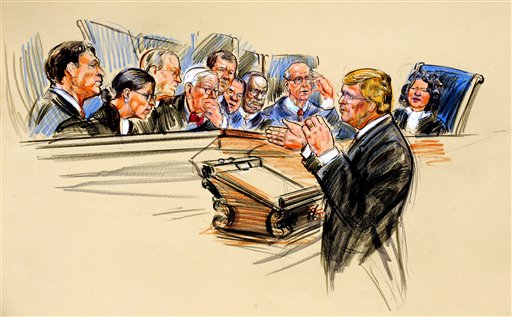
Citizens United v. Federal Elections Commission was decided by the court in 2010 and overturned the court’s 2003 decision in McConnell v. FEC, which banned corporations from making “electioneering communications.”
The majority justified the overruling by saying that political speech was protected under the First Amendment, no matter if the speaker is an individual or a corporation.
“Political speech is what allows us to become properly informed and play the role that we play as voters in our democracy,” Raleigh Levine, a professor at the Mitchell Hamline School of Law said. “So, generally, the court has been very, very protective of speech that is political.”
The second major decision the court made in Citizens United was removing the ban on independent political spending by corporations.
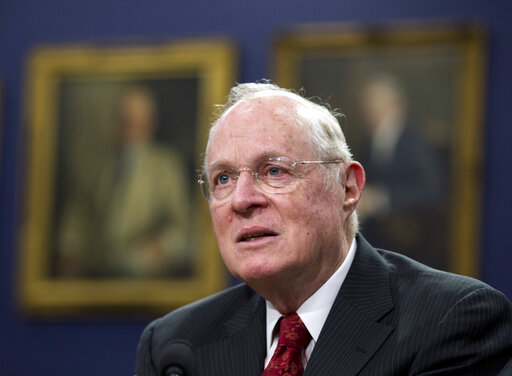
The court drew a new distinction that differentiated political spending from other types of spending and protected it under the First Amendment.
“If you look at it strictly from a freedom of expression standpoint, then money is one of the ways we express ourselves,” TCU political science professor Donald Jackson said. “If you put limits upon how we spend our money for politics, then you are limiting the point of view of people who have money.”
Corporations and unions can now collect and spend as much as they want as long as the money is spent independently of a candidate’s campaign.
Independent spending by outside groups has increased dramatically since the court’s decision, according to data compiled by the Center for Responsive Politics.
This includes a $700 million jump between the 2008 and 2012 presidential elections. The 2012 election was the first to see more than $1 billion of outside money spent.
Part of the increase can be attributed to the introduction of Super PACs — political action committees that cannot donate directly to a campaign but have no limitations on the number of independent expenditures they can collect and spend.
Super PAC spending mainly goes towards supporting candidates and attacking their opponents via advertisements.
One Super PAC, the Congressional Leadership Fund, spent more than $124 million against Democratic candidates in 2018.
Other Super PACs, like American Bridge 21st Century, have already spent over $1 million to oppose President Trump in the run-up to the next election.
Advocates for campaign finance reform have argued that the ability of these groups to spend such large amounts is giving them outsized influence on election outcomes.
“Money can influence the outcome of an election, not just through corrupting a candidate and buying votes, but by drowning out other voices,” Levine said to explain their rationale. “[This gives these groups] a chance to dominate the marketplace of ideas by speaking loudly and more often than anybody else.”
The ability of Super PACs to accept unlimited contributions has also allowed individuals to donate more.
FEC regulations limit direct donations to candidate’s committees to $2800 per election cycle and cap out individual donations to political action committees at $5000 per year.
A lack of such limits on Super PAC donations has led to the rise of “mega-donors” in politics.
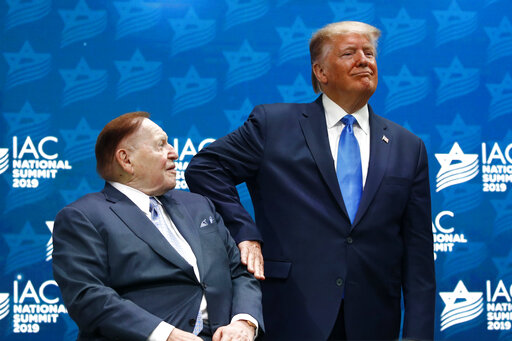
Casino owner Sheldon Adelson led the pack in 2018 by donating $122 million to GOP-backed Super PACs.
Democratic presidential candidates Tom Steyer and Michael Bloomberg gave $72 and $92 million respectively in the same cycle.
The total given by the top 100 donors in 2019 accounted for 77.7% of the money raised in 2018, according to data from the Center for Responsive Politics. The list included Amazon founder Jeff Bezos, award-winning director Steven Spielberg and the owner of the Houston Texans Robert McNair.
Jackson used the work of prominent economist Mancur Olson to explain why wealthy individuals have an incentive to donate such large sums.
“He (Mancur Olson) points out that if you have a lot of money, you are willing to enter the political fray because the payoff for you for changing policy is sufficiently large that it is worth the expenditure,” Jackson said. “But that doesn’t apply to most of us. So essentially there is a built-in bias in favor of large aggregations of wealth or power and that is the way the system works.”
Six original members of President Trump’s cabinet donated to his campaign, and donors made up 38% of those he chose for high-level government posts, according to Politico.
The growth in political fundraising since Citizens United has also resulted in more calls for campaign finance reform.
Every Democratic presidential candidate is rejecting corporate PAC donations. Sens. Bernie Sanders and Elizabeth Warren are rejecting all super PAC donations and publicly refusing to hold any high dollar private fundraisers.
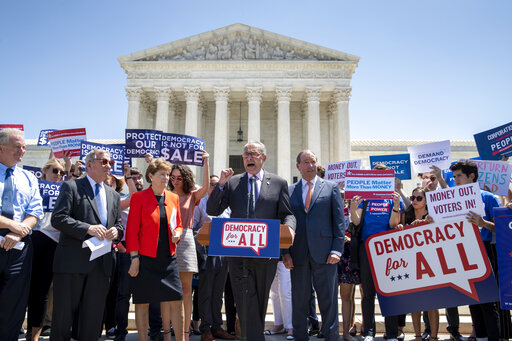
Many of the candidates have called for a constitutional amendment to overturn Citizens United.
Democrats in the House and Senate have introduced legislation this year to overturn Citizens.
“A constitutional amendment will allow Congress to regulate election spending, establish public financing as the sole way to finance elections, and bring an end to the era of big money in politics,” according to Warren’s campaign website.
Both Levine and Jackson agreed that an amendment overturning the ruling is the only way to stop the increasing flow of money into politics — a very unlikely occurrence in a polarized age.
“To have any kind of decent control upon political contributions, you’d have to amend the constitution,” Jackson said. “That is extremely unlikely to happen.”
Levine added that until an amendment is ratified or the court decides to overrule Citizens, she thinks political spending by outside groups will continue to increase.



